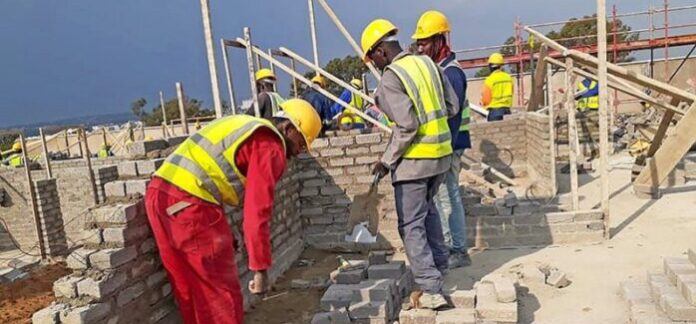Women in the construction industry unloaded their hearts on Mpumalanga Premier Mandla Ndlovu this week about construction mafias demanding sexual favours if they don’t want their projects disrupted.
The women exposed this chilling underbelly of the industry during their “Building Resilient Economies for All” dialogue with the premier at the Ehlanzeni Disaster Management Centre in Mbombela.
What was intended as a celebratory platform to showcase women’s progress in a male-dominated sector quickly turned into a sobering session on the exploitation, extortion and violence women face at the hands of underworld kingpins.
“We are the most targeted businesspeople in construction because they take advantage of the fact that we are women,” said South African Women in Construction and Built Environment national president Thembeka Mnisi.
Mnisi, elected national president last year after two terms as Mpumalanga chair, told Sunday World that the dialogue forced women to speak hard truths in front of the premier.
“Mostly, the premier usually gets reports from the departments, but he saw the need to come and hear our challenges directly.
“These construction mafia issues were the challenges the premier needed to hear so that he can put them in a report and see how best they could be addressed,” she said.
Mnisi detailed the degrading demands that have become routine.
“We complete projects under the challenge of construction mafias wanting to dictate how we should run [them].
“Most women end up being victims of gender-based violence in terms of being sexually assaulted in exchange for protection,” she explained.
The predatory tactics, she said, are often masked.
“Obviously, people will come in different ways, even looking clean. But when you understand that you have loans and you need to deliver on your project to recover your money, most women end up succumbing to things they are not comfortable with.
“You don’t know what to do because you find yourself in a difficult position.”
Mnisi said the masterminds behind the exploitation operate as power brokers.
“The person who will make demands is the kingpin. The most common thing outside of sexual exploitation is money.
“Others are told to pay money they simply do not have. For protection, you must pay. Those problems are real.
“You end up selling your properties or your house because the project has taken your money and your creditworthiness.”
Mnisi noted that women contractors are particularly vulnerable because of the industry’s payment structure.
Business loans must often be serviced within 30 days before client payments are released. Extortion by mafias can therefore wipe out project profits, trapping women in cycles of debt.
The dialogue was originally planned as a celebration of women’s contributions to the economy. Instead, it became a watershed moment that spotlighted the dark realities threatening to derail their progress.
“Despite the odds, women are here,” Mnisi said firmly. “We are project managers, engineers, architects, bricklayers, quantity surveyors and CEOs, shaping skylines and building infrastructure. We are redefining the face of this industry.”
She added that the sector is bleeding talent.
“I have had my expertise questioned before my work was even seen. And I have seen skilled women leave, not because they lacked passion, but because the barriers were too high. We are not asking for special treatment. We are asking for fair ground to stand on.”
Ndlovu, shaken by the testimonies, commended the women for their courage and vowed to take action.
“Women, we have heard your voices,” he said. “I do not want you to demand another dialogue because you think we are not implementing our resolutions.”
He added that the national government had already intervened by deploying senior police officers in every province to specifically deal with construction mafias at the construction sites.
Ndlovu stressed that women-owned companies would be prioritised in the province’s procurement processes.
“We shall not be apologetic about this. We have a responsibility to actively and effectively promote gender equality.
“Our minimum target is that 50% of businesses in Mpumalanga’s procurement must be women-owned,” he declared.
The premier praised the resilience of women in construction. “You are not just building with bricks and cement. You are building dreams, step by step.
“You do not only construct buildings; you create homes, you shape our cities, and you build the foundations of tomorrow.”
The dialogue was a turning point, urging the government to directly confront the silent crisis that women contractors endure.



